An endorsement letter, also known as a recommendation letter, is a written statement that supports and vouches for the abilities, character, and qualifications of an individual. This type of letter is often used in various professional and academic settings to endorse job applicants, students, or business partners. Endorsement letters can carry significant weight and influence in decision-making processes, making it important to craft them carefully and effectively.
They should be written by someone who knows the endorsee well and can attest to their skills, accomplishments, and potential. The letter should highlight the strengths of the endorsee and provide concrete examples to support the endorsement. A well-written endorsement letter can provide valuable insights into the endorsee’s character, abilities, and potential, and can play a crucial role in helping them achieve their goals and advance their careers.
Table of Contents
Endorsement Letter Templates
Endorsement Letter Templates are essential documents for various purposes, from job applications to product endorsements. They are typically used to recommend a person or product and provide an endorsement of their abilities or qualities. These templates are designed to save you time and effort when crafting an endorsement letter, making it easy to create a professional and personalized document that effectively conveys your message. With a variety of templates available for different scenarios, you can find the perfect template to fit your needs and help you get your message across in a clear and concise manner.
Importance of Endorsement Letter

An endorsement letter is a written document that serves as a testimonial or support for a person, product, service, or company. It can be used for a variety of purposes, such as endorsing a candidate for political office, supporting a grant application, or promoting a product or service.
The importance of an endorsement letter lies in its ability to provide credibility and validation to the recipient. Here are some reasons why endorsement letters are important:
Boosts credibility: Endorsement letters from well-respected individuals or organizations can greatly increase the credibility of a product, service, or person. This can help to build trust with potential customers, clients, or voters.
Increases visibility: Endorsement letters can help to increase the visibility of a product, service, or person by reaching a wider audience through the endorsement of a well-known individual or organization.
Demonstrates support: Endorsement letters demonstrate support from individuals or organizations that have personally experienced the benefits of a product, service, or person. This can help to increase confidence and interest in the recipient.
Adds weight to an application: In the case of grant applications or job applications, endorsement letters can add weight to the application and increase the chances of success.
In conclusion, endorsement letters can play a significant role in promoting and validating products, services, people, or organizations.
What does a letter of endorsement include?
A letter of endorsement typically includes the following elements:
Introduction: This section should include the name of the person, product, service, or company being endorsed, as well as the relationship between the endorser and the recipient.
Endorsement statement: This section is the most important part of the letter, and should clearly state the endorsement and support being provided. The endorser should provide specific reasons why they are endorsing the recipient, and highlight the strengths and benefits of the recipient.
Personal experience: If applicable, the endorser may include a personal experience with the recipient, such as how they have used the product or service or have had a positive interaction with the person being endorsed.
Credentials: If the endorser has relevant credentials or qualifications, they should be included in the letter to lend credibility to the endorsement.
Closing: The letter should include a closing that reiterates the endorsement, thanks the recipient, and provides contact information for the endorser.
Signature: The letter should be signed by the endorser, either by hand or with an electronic signature.
It is important for a letter of endorsement to be well-written, professional, and sincere. The endorsement should be specific and meaningful, and provide value to the recipient. The tone should be positive and enthusiastic, and the language should be clear and concise.
Types of endorsement letters
Endorsement letters are written to support, recommend or endorse a person, product, service, or idea. Here are some common types of endorsement letters:
Character endorsement letter: A character endorsement letter is written to endorse someone’s character and personal qualities. This type of letter is often required for job or school applications, scholarships, and immigration purposes.
Professional endorsement letter: A professional endorsement letter is written to endorse someone’s professional skills, experience, and qualifications. This type of letter is often used for job applications and promotions.
Product endorsement letter: A product endorsement letter is written to endorse a particular product or service. This type of letter is often used by companies to promote their products or services and to build brand trust.
Political endorsement letter: A political endorsement letter is written to endorse a political candidate or a political party. This type of letter is often written by political figures, organizations, or interest groups to show their support for a particular candidate or party.
Academic endorsement letter: An academic endorsement letter is written to endorse a student’s academic achievements and potential. This type of letter is often required for college and university applications, scholarships, and study abroad programs.
Loan endorsement letter: A loan endorsement letter is written to endorse a loan application or to serve as a reference for someone who is seeking a loan. This type of letter is often used by lenders to assess the creditworthiness of the borrower.
Reference endorsement letter: A reference endorsement letter is written to endorse someone’s job performance or qualifications. This type of letter is often used by previous employers or colleagues to provide a reference for a job applicant.
Book endorsement letter: A book endorsement letter is written to endorse a book, either by the author or by someone who has read and reviewed the book. This type of letter is often used by publishers to promote books and to encourage people to read them.
Technology endorsement letter: A technology endorsement letter is written to endorse a particular technology or software product. This type of letter is often used by technology companies to promote their products and to build brand trust.
Event endorsement letter: An event endorsement letter is written to endorse a particular event or activity, such as a concert, sports game, or charity event. This type of letter is often used by event organizers to promote their events and to encourage people to attend.
How to write a letter of endorsement
Writing a letter of endorsement can be a great way to support someone or something that you believe in. Here is a step-by-step guide on how to write a letter of endorsement:
Step 1: Determine the Purpose of Your Letter
Before you start writing your letter, it’s important to determine the purpose of the letter. Are you endorsing a product, a person, a service, or an idea? Knowing the purpose of your letter will help you determine the tone and style of the letter, as well as the information that you need to include.
Step 2: Gather Information
Gather information about the person, product, service, or idea that you are endorsing. This information can help you make your endorsement more specific and credible. If you’re endorsing a person, gather information about their qualifications, experience, and achievements. If you’re endorsing a product, gather information about its features, benefits, and performance.
Step 3: Choose Your Tone
The tone of your letter should be professional and positive. Avoid using negative language or making false claims, as this can damage your credibility and the credibility of the endorsement.
Step 4: Start with a Salutation
Begin your letter by addressing the recipient by name, if possible. If you don’t know the recipient’s name, use a formal salutation, such as “To Whom it May Concern.”
Step 5: Introduce Yourself
Introduce yourself in the first paragraph of the letter, including your name, title, and affiliation. This will help the recipient understand who you are and why you are writing the letter.
Step 6: Make Your Endorsement
In the second paragraph of the letter, make your endorsement. Be specific and use specific examples to support your endorsement. If you’re endorsing a person, mention their qualifications, experience, and achievements. If you’re endorsing a product, mention its features, benefits, and performance.
Step 7: Provide Additional Information
In the next few paragraphs, provide additional information to support your endorsement. This can include your own personal experiences with the person, product, service, or idea, as well as any additional information that you think will be relevant to the recipient.
Step 8: Conclude the Letter
In the final paragraph of the letter, conclude your endorsement by restating your support and wishing the recipient the best. End the letter with a professional closing, such as “Sincerely” or “Best regards,” followed by your signature and printed name.
Step 9: Proofread and Edit
Before sending the letter, make sure to proofread and edit it for grammar, spelling, and punctuation errors. A well-written and professional letter can make a big difference in the impact of your endorsement.
Example of an endorsement letter
Here is an example of an endorsement:
Dear [Recipient’s Name],
I am writing to endorse [Person, product, service, or idea being endorsed]. As [Your title and affiliation], I have had the pleasure of working with [Person being endorsed] for [length of time]. During this time, I have been impressed with [their qualifications, experience, and achievements].
[Person being endorsed] is a highly skilled and dedicated professional, who consistently goes above and beyond to deliver exceptional results. Their expertise in [field or skill relevant to endorsement] has been invaluable to our team and has contributed greatly to our success.
I wholeheartedly endorse [Person being endorsed] and have no doubt that they will continue to excel in any role or project that they undertake. I highly recommend [them] for any opportunity that may arise.
Sincerely,
[Your Signature]
[Your Printed Name]
FAQs
Who writes endorsement letters?
Endorsement letters can be written by a variety of people, including business leaders, customers, friends, family members, and other individuals who have had positive experiences with the person, product, service, or idea being endorsed.
How is an endorsement letter used?
An endorsement letter can be used for a variety of purposes, including promoting a person’s candidacy for a job or admission to a school, promoting a product or service, and promoting an idea or cause. The endorsement letter can be used as part of a larger marketing or promotional campaign, or it can be used as a standalone document to endorse a specific person, product, service, or idea.
Are endorsement letters formal or informal?
Endorsement letters can be either formal or informal, depending on the purpose of the letter and the relationship between the writer and the person being endorsed. Endorsement letters written for professional or business purposes are typically more formal, while endorsement letters written by friends or family members may be more informal.
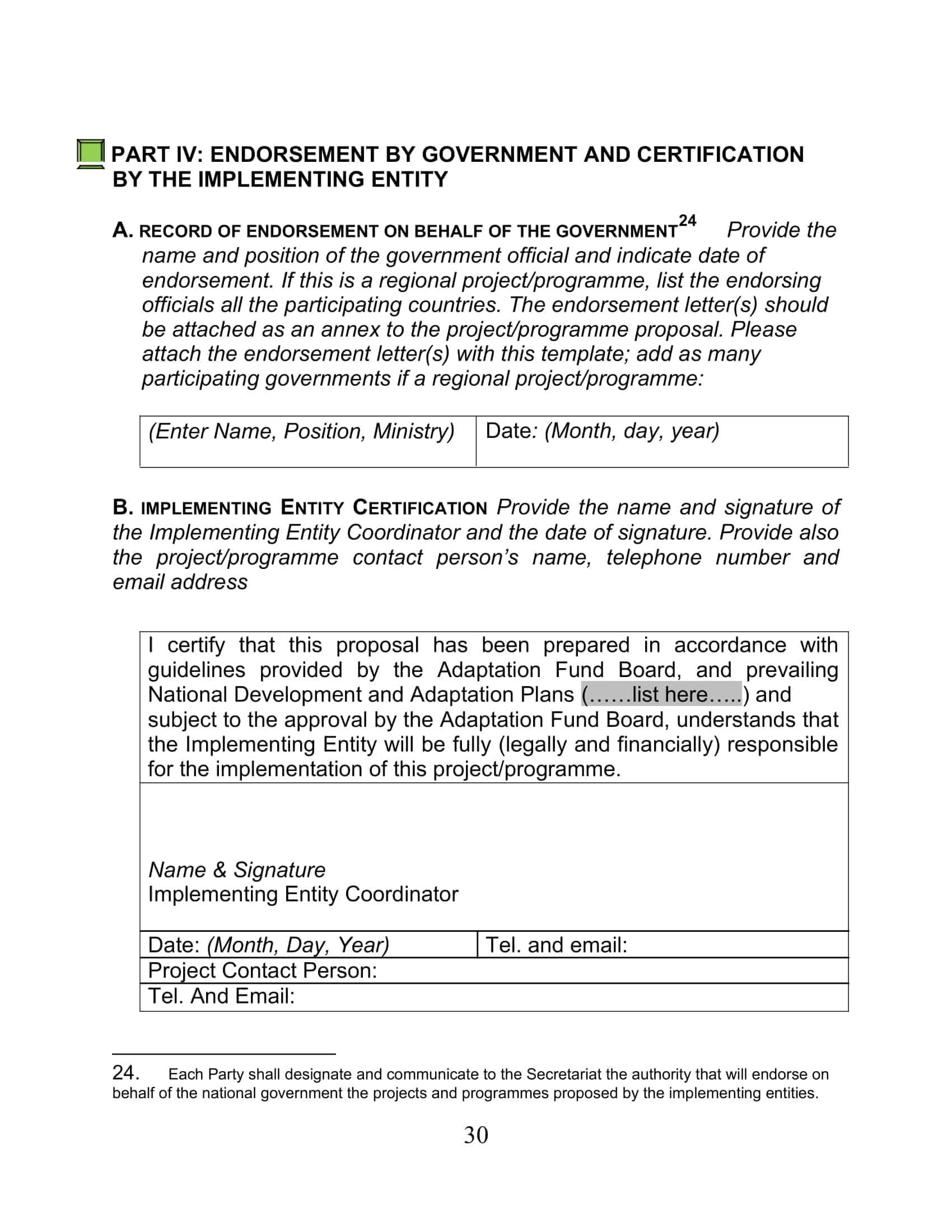


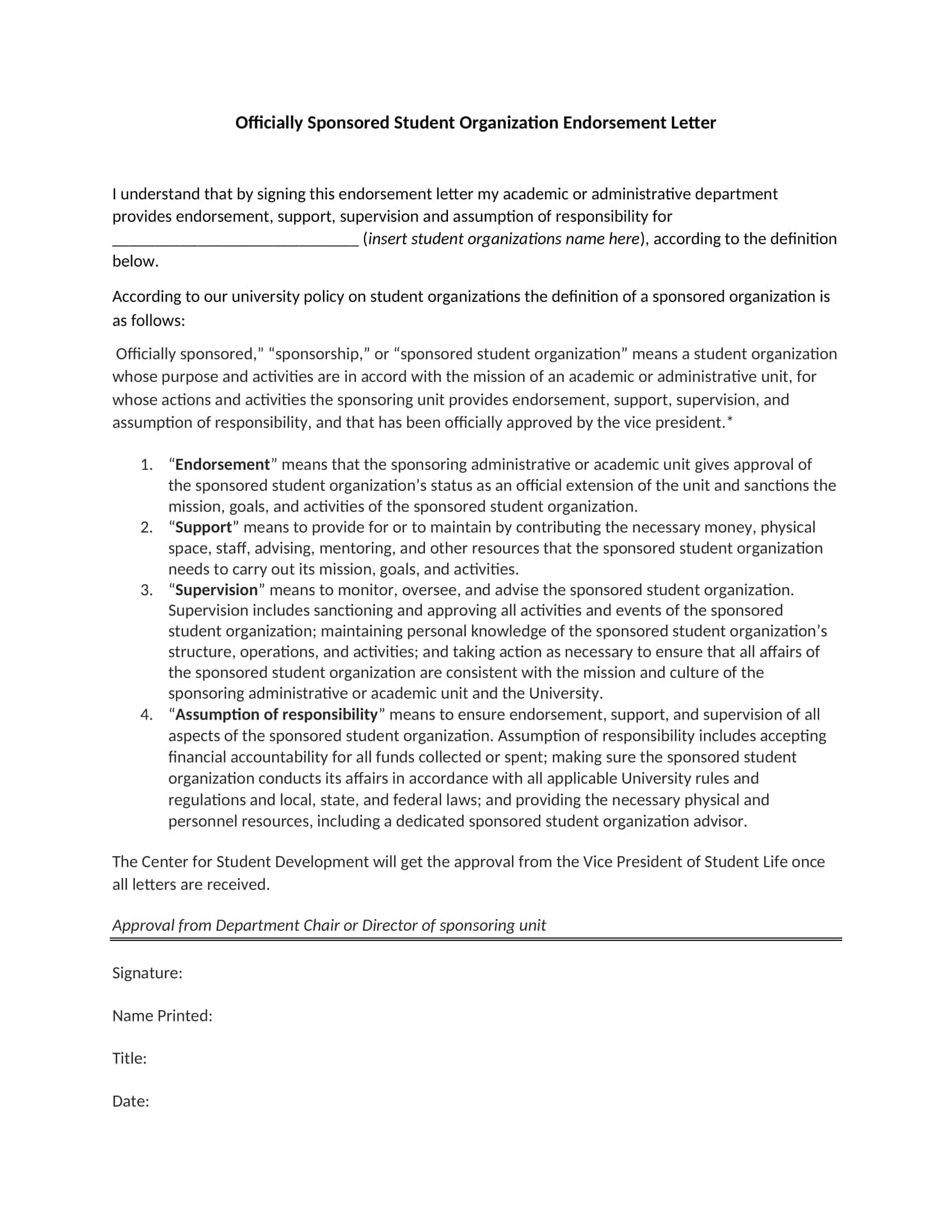







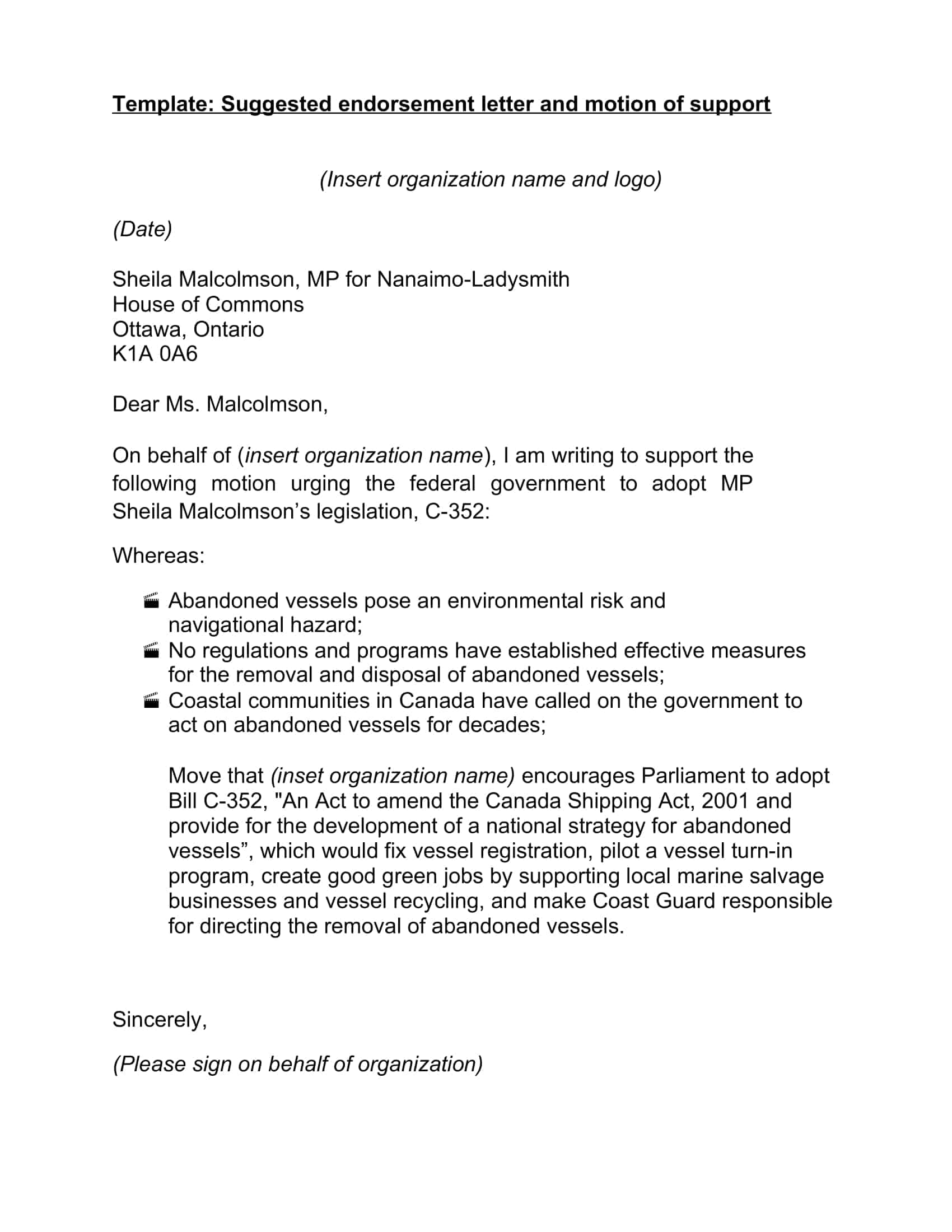








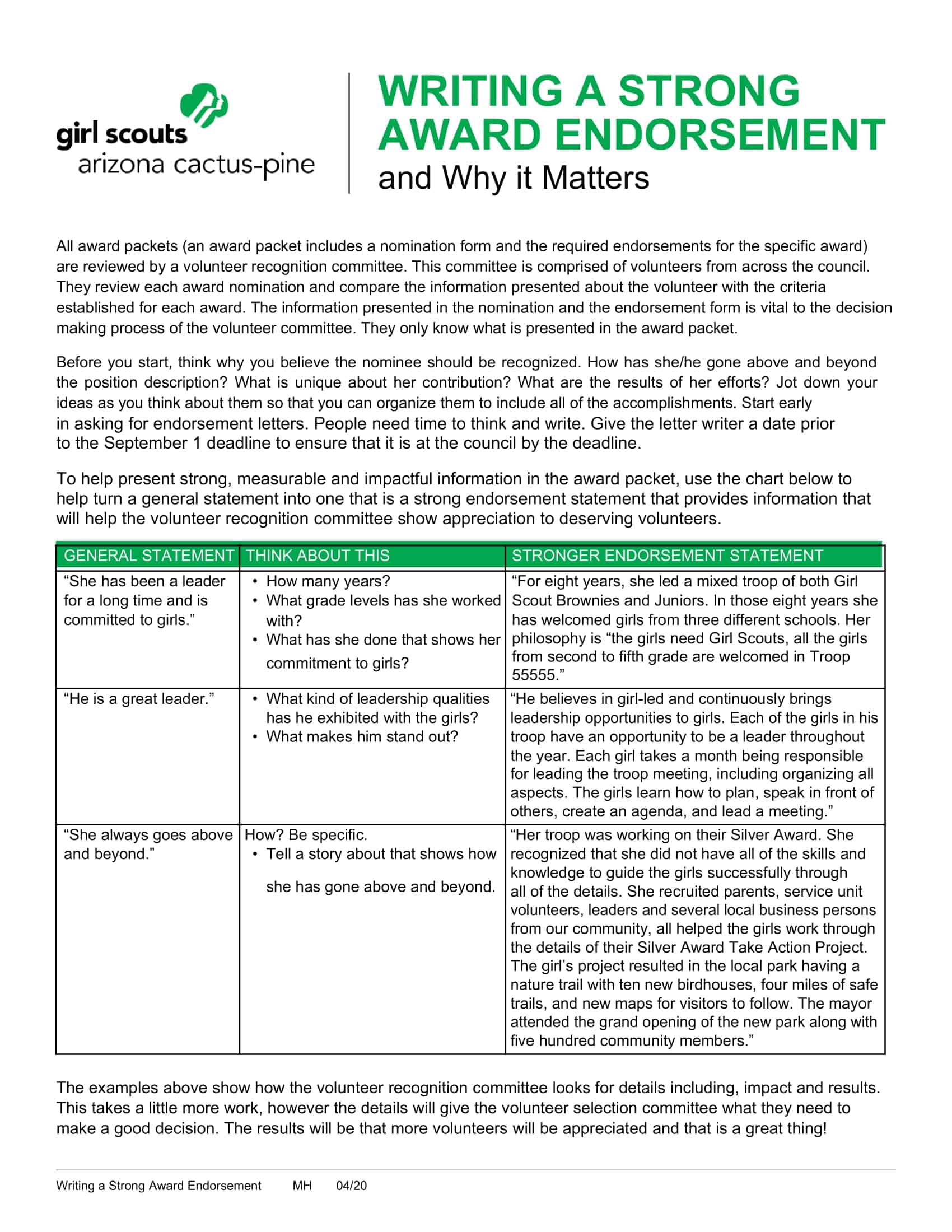



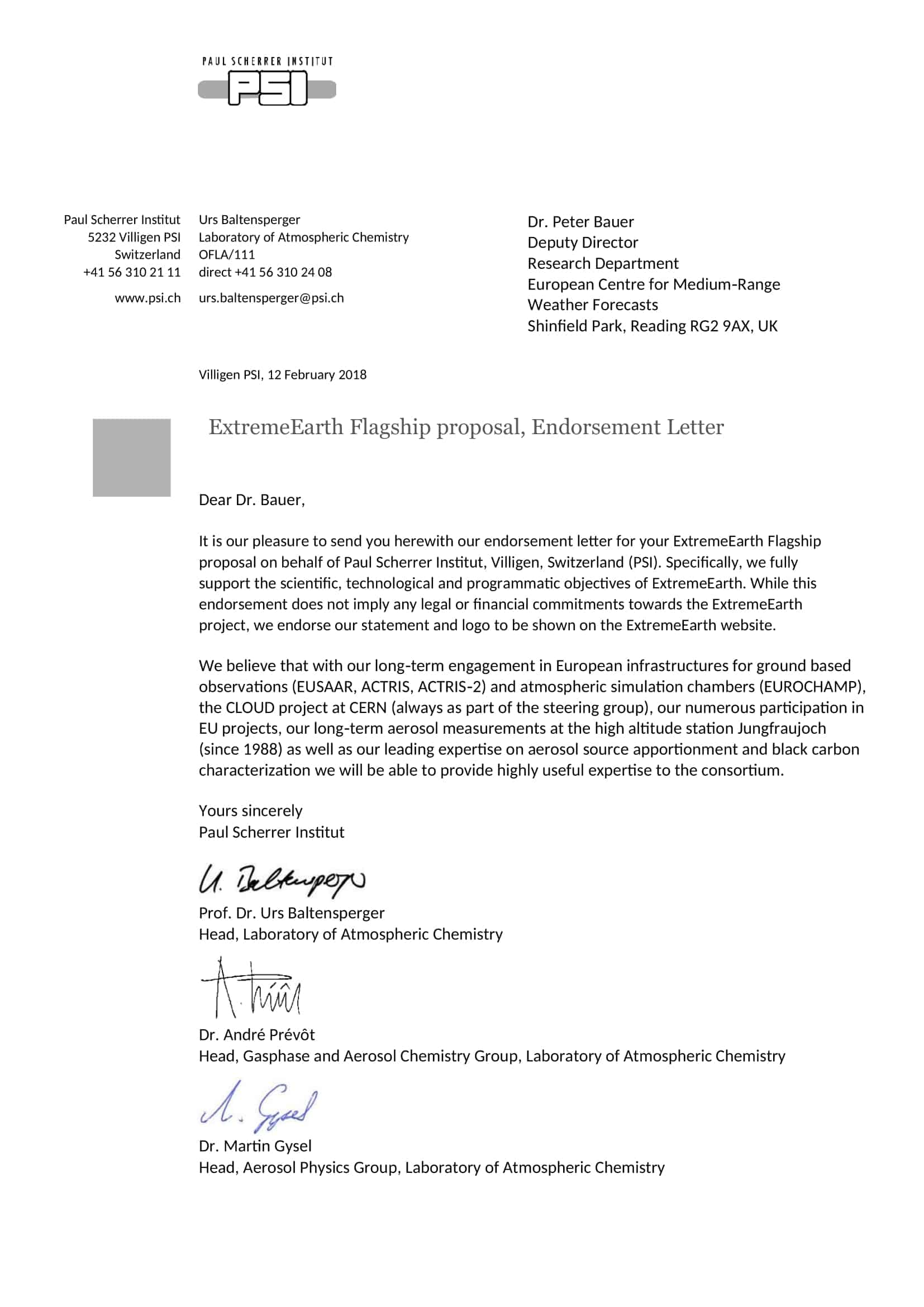
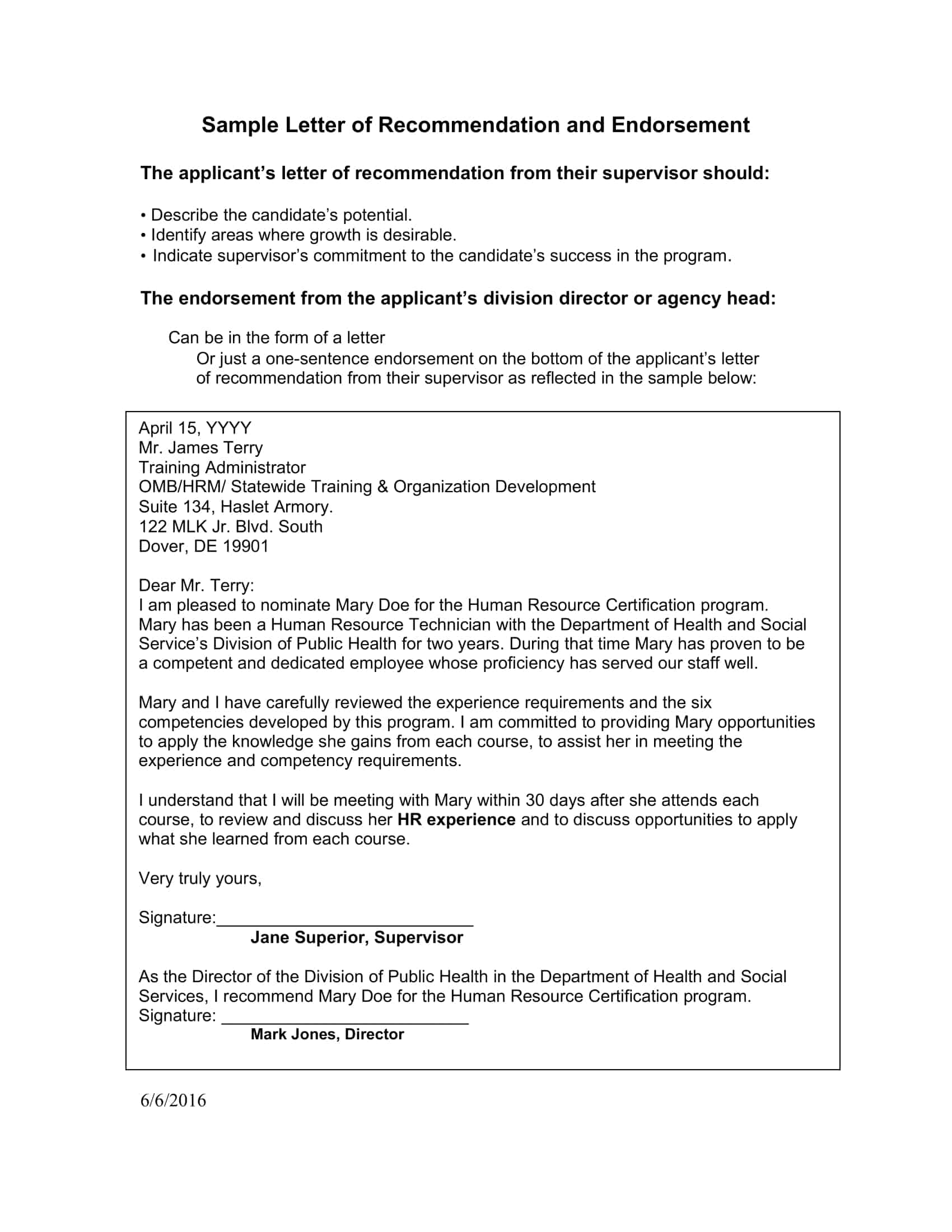

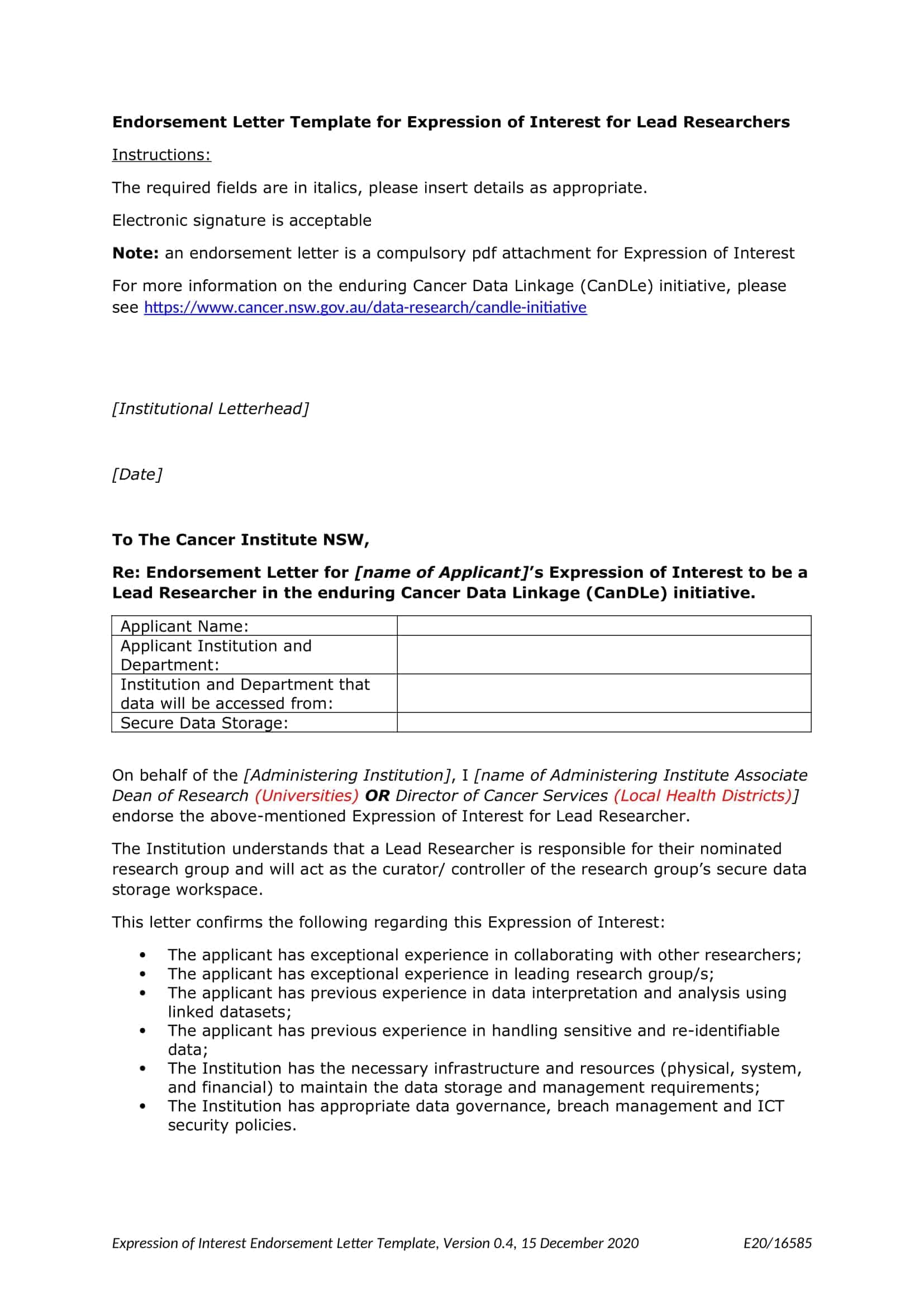
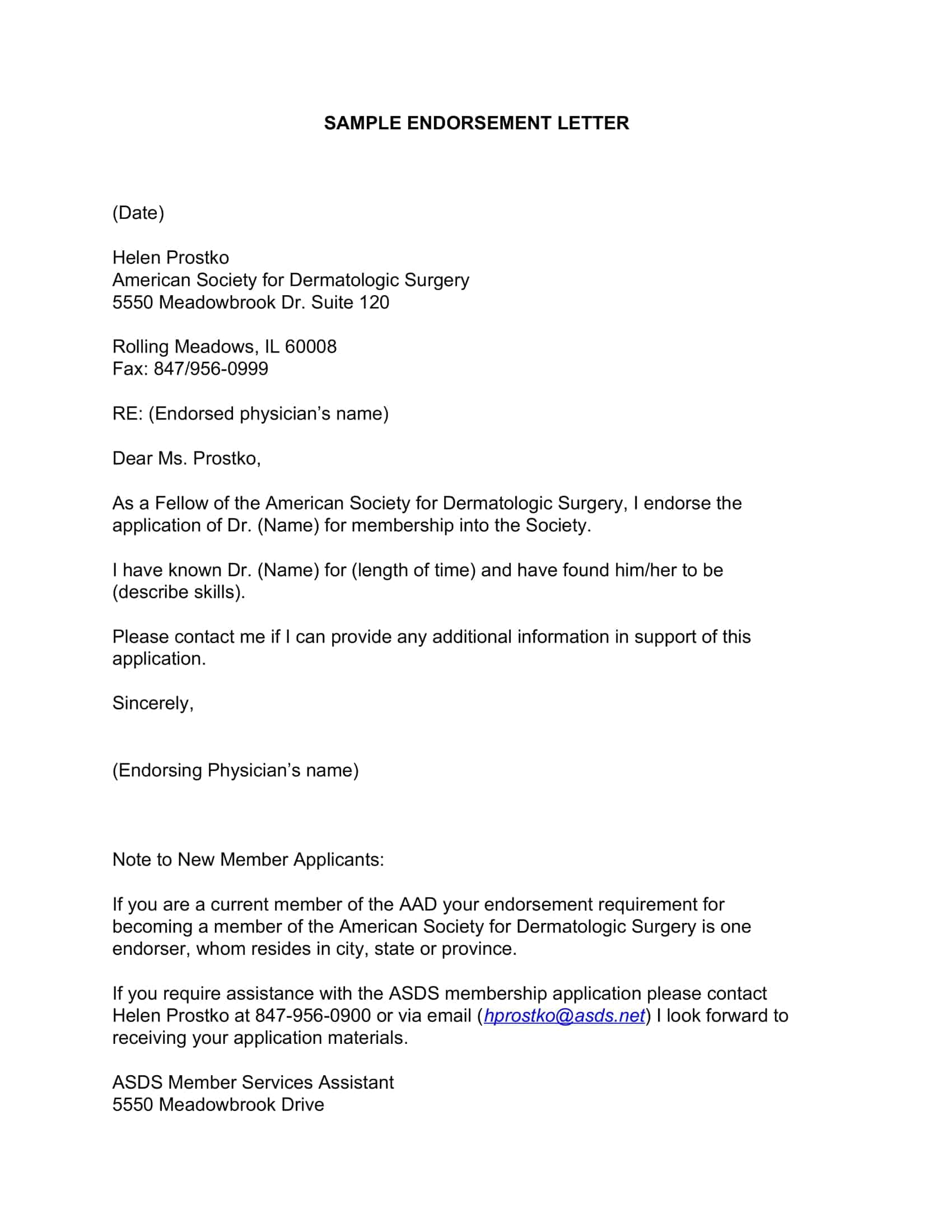











![Free Printable Friendly Letter Templates [PDF, Word, Excel] 1st, 2nd, 4th Grade 1 Friendly Letter](https://www.typecalendar.com/wp-content/uploads/2023/05/Friendly-Letter-150x150.jpg 150w, https://www.typecalendar.com/wp-content/uploads/2023/05/Friendly-Letter-1200x1200.jpg 1200w)
![43+ Printable Leave of Absence Letter (LOA) Templates [PDF, Word] / Free 2 Leave of Absence Letter](https://www.typecalendar.com/wp-content/uploads/2023/01/Leave-of-Absence-Letter-150x150.jpg 150w, https://www.typecalendar.com/wp-content/uploads/2023/01/Leave-of-Absence-Letter-1200x1200.jpg 1200w)
![%100 Free Hoodie Templates [Printable] +PDF 3 Hoodie Template](https://www.typecalendar.com/wp-content/uploads/2023/05/Hoodie-Template-1-150x150.jpg)
